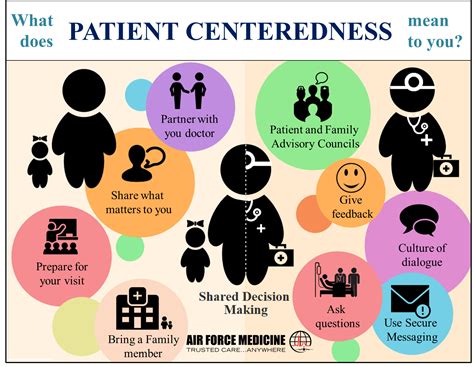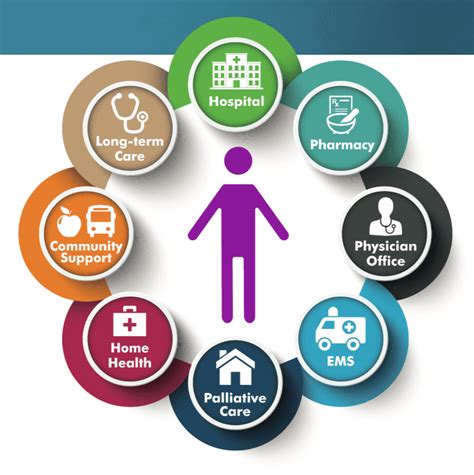Intro
Discover the crucial role of a Patient Care Coordinator in healthcare. Learn about the 5 key responsibilities, including patient intake, care planning, and communication. Understand how they ensure seamless care transitions, patient engagement, and optimal health outcomes, making them a vital part of the healthcare team.
As the healthcare industry continues to evolve, the role of a Patient Care Coordinator has become increasingly important in ensuring that patients receive high-quality, patient-centered care. A Patient Care Coordinator is a vital member of the healthcare team, responsible for coordinating patient care services, communicating with patients and families, and ensuring that patients receive seamless care transitions. In this article, we will explore the 5 key responsibilities of a Patient Care Coordinator and how they contribute to improving patient outcomes and satisfaction.

Ensuring Smooth Care Transitions
One of the primary responsibilities of a Patient Care Coordinator is to ensure that patients experience smooth care transitions. This involves coordinating with healthcare providers, hospitals, and other healthcare facilities to ensure that patients receive continuous care. Patient Care Coordinators must communicate effectively with patients, families, and healthcare providers to ensure that patients receive the necessary care and services.
Coordinating Patient Care Services
Patient Care Coordinators are responsible for coordinating patient care services, including scheduling appointments, arranging transportation, and coordinating home care services. They must work closely with healthcare providers to ensure that patients receive the necessary care and services in a timely manner. Patient Care Coordinators must also communicate with patients and families to ensure that they are aware of the care plan and any changes to the plan.
Communicating with Patients and Families
Effective communication is critical in patient care coordination. Patient Care Coordinators must communicate clearly and compassionately with patients and families, providing them with information about the care plan, treatment options, and any changes to the plan. They must also listen to patients' concerns and address any questions or concerns they may have.

Managing Patient Data and Records
Patient Care Coordinators are responsible for managing patient data and records, ensuring that patient information is accurate and up-to-date. They must maintain confidentiality and adhere to HIPAA regulations, ensuring that patient information is protected. Patient Care Coordinators must also ensure that patient records are complete and accurate, including medical history, test results, and treatment plans.
Identifying and Addressing Patient Needs
Patient Care Coordinators must identify and address patient needs, including physical, emotional, and social needs. They must work closely with healthcare providers to develop a comprehensive care plan that addresses patient needs and promotes patient-centered care. Patient Care Coordinators must also communicate with patients and families to ensure that they are aware of the care plan and any changes to the plan.

Benefits of Effective Patient Care Coordination
Effective patient care coordination has numerous benefits, including:
- Improved patient outcomes and satisfaction
- Reduced hospital readmissions and lengths of stay
- Enhanced patient safety and quality of care
- Improved communication and collaboration among healthcare providers
- Increased patient engagement and empowerment
Challenges Facing Patient Care Coordinators
Patient Care Coordinators face numerous challenges, including:
- Managing complex patient needs and care plans
- Communicating effectively with patients and families
- Coordinating care transitions and services
- Managing patient data and records
- Ensuring patient safety and quality of care

Best Practices for Patient Care Coordinators
To ensure effective patient care coordination, Patient Care Coordinators should:
- Communicate clearly and compassionately with patients and families
- Coordinate care transitions and services effectively
- Manage patient data and records accurately and confidentially
- Identify and address patient needs comprehensively
- Collaborate with healthcare providers to develop comprehensive care plans
Future of Patient Care Coordination
The future of patient care coordination is promising, with advancements in technology and healthcare reform. Patient Care Coordinators will play an increasingly important role in ensuring that patients receive high-quality, patient-centered care. As the healthcare industry continues to evolve, Patient Care Coordinators must adapt to new challenges and opportunities, leveraging technology and best practices to improve patient outcomes and satisfaction.

If you're a healthcare professional looking to make a difference in patient care, consider becoming a Patient Care Coordinator. With the right training and experience, you can play a critical role in ensuring that patients receive high-quality, patient-centered care.
Join the Conversation!
We'd love to hear from you! Share your thoughts and experiences with patient care coordination in the comments below. How do you think Patient Care Coordinators can improve patient outcomes and satisfaction?
What is the role of a Patient Care Coordinator?
+A Patient Care Coordinator is a healthcare professional responsible for coordinating patient care services, communicating with patients and families, and ensuring that patients receive seamless care transitions.
What are the key responsibilities of a Patient Care Coordinator?
+The 5 key responsibilities of a Patient Care Coordinator include ensuring smooth care transitions, coordinating patient care services, communicating with patients and families, managing patient data and records, and identifying and addressing patient needs.
What are the benefits of effective patient care coordination?
+Effective patient care coordination has numerous benefits, including improved patient outcomes and satisfaction, reduced hospital readmissions and lengths of stay, enhanced patient safety and quality of care, improved communication and collaboration among healthcare providers, and increased patient engagement and empowerment.
